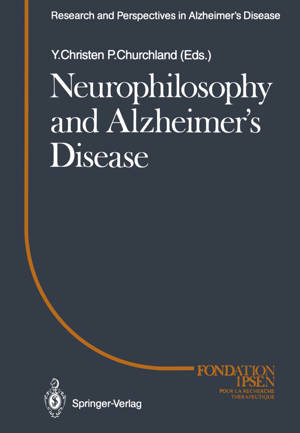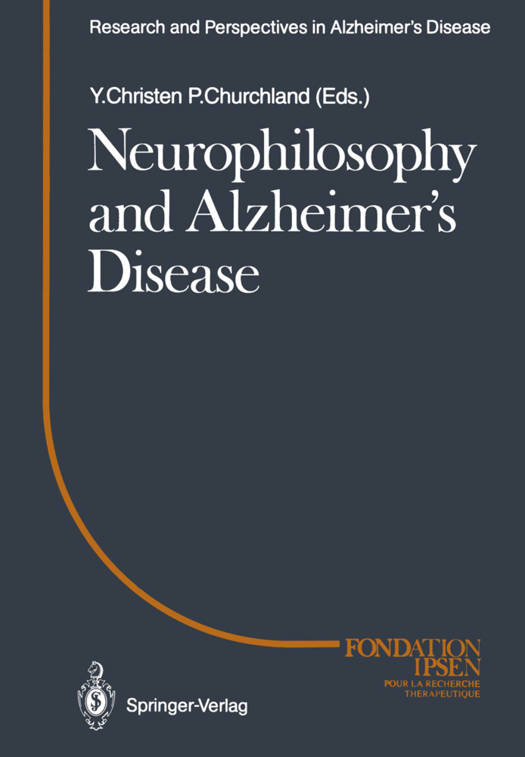
- Afhalen na 1 uur in een winkel met voorraad
- Gratis thuislevering in België vanaf € 30
- Ruim aanbod met 7 miljoen producten
- Afhalen na 1 uur in een winkel met voorraad
- Gratis thuislevering in België vanaf € 30
- Ruim aanbod met 7 miljoen producten
Zoeken
Neurophilosophy and Alzheimer's Disease
€ 209,95
+ 419 punten
Omschrijving
Any mention of the relationship, still poorly understood, between body (or brain) and mind invariably invokes the name of Descartes, who is often thought of as the father of modern philosophy and perhaps of neurophilosophy. Although a native of the heart of France (the region around Tours), Rene Descartes travelled widely, as everyone knows, especially to Holland and Sweden. It should come as no surprise, that the Congress of Neurophilosophy and Alzheimer's Disease was the first in the series of Fondation Ipsen Colloques Medecine et Recherche to be held outside France. The meeting was held in San Diego (California) on January 11, 1991. This venue was chosen for a number of reasons. The University of California San Diego is without doubt one of the most dynamic universities today. A good number of friends of the Fondation Ipsen who have taken part as speakers in previous conferences are based there. Patricia Churchland, whose publications have helped "launch" the term "neurophilosophy", also teaches there. The choice of this particular venue gave us the welcome opportunity of benefiting directly during the conference from the participation of many eminent (including some Nobel Prize-winning) scientists, including biochemists, neuro- scientists and "alzheimerologist", psychologists, cognitive science specialists and philosophers.
Specificaties
Betrokkenen
- Uitgeverij:
Inhoud
- Aantal bladzijden:
- 153
- Taal:
- Engels
- Reeks:
Eigenschappen
- Productcode (EAN):
- 9783642467615
- Verschijningsdatum:
- 5/05/2012
- Uitvoering:
- Paperback
- Formaat:
- Trade paperback (VS)
- Afmetingen:
- 170 mm x 244 mm
- Gewicht:
- 276 g

Alleen bij Standaard Boekhandel
+ 419 punten op je klantenkaart van Standaard Boekhandel
Beoordelingen
We publiceren alleen reviews die voldoen aan de voorwaarden voor reviews. Bekijk onze voorwaarden voor reviews.







